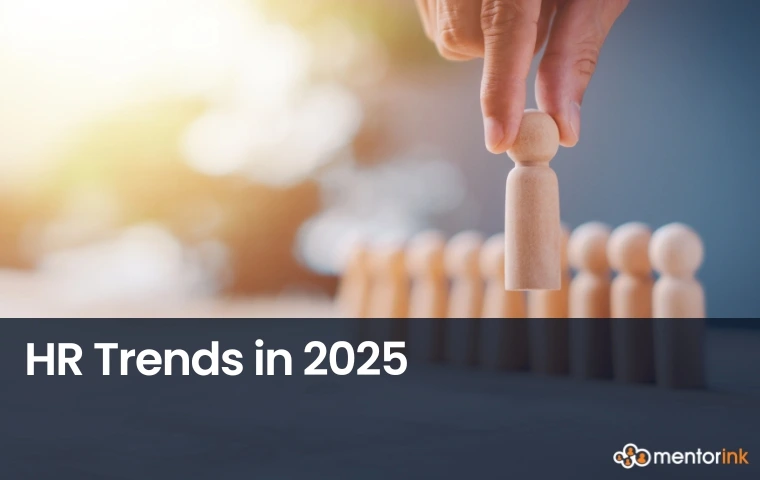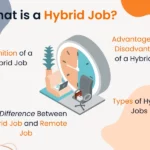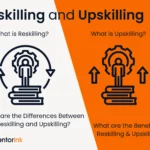
In 2025, the human resources (HR) sector is going through a significant transition. Businesses are negotiating a workforce that is changing quickly due to changes in workplace dynamics, employee expectations, and technological breakthroughs. Traditional HR trends are no longer enough; in order to remain competitive, companies must embrace creative, data-driven, and employee-focused solutions.
Best HR Trends in 2025
Employee Well-Being
Employee well-being is one of the biggest HR concepts of 2025. Businesses have realized in recent years that a happy and healthy workforce is more engaged and productive. Work-life balance, mental health support, and general job satisfaction are all components of a comprehensive approach to employee well-being that goes beyond health insurance and gym memberships.
To avoid burnout in the workplace, businesses are using AI-powered health initiatives, providing flexible work schedules, and promoting time-off requirements. Businesses that put employee well-being first report increased morale, increased productivity, and decreased turnover rates. Businesses that underestimate this issue run the danger of losing important talent because today’s workforce expects their employers to care about their mental and physical well-being.
Hybrid or Remote Work Options
In 2025, HR professionals will also be heavily focused on remote and hybrid work plans in HR trends. During the pandemic, remote work became widespread, but businesses now understand that a hybrid approach delivers the best of both worlds.
Organizations are creating hybrid work models to balance the demands of employees who prefer in-person cooperation and flexibility. Many businesses permit their employees to work remotely a few days a week, but they still need to be present in the office for meetings and team-building exercises. Virtual workspaces, which provide workers with immersive digital settings where they may collaborate as if they were physically there, are likewise becoming more and more popular.
Development of New Skills
Because of the speed at which technology is developing, employees now need to acquire new abilities. Employees need to constantly improve their skills to be relevant since employment responsibilities are changing due to automation, artificial intelligence, and digital transformation. Businesses are already spending money on AI-driven learning systems that tailor instruction according to a worker’s skill gaps and career objectives.
Employees can now use microlearning programs, which enable them to develop new skills in brief, targeted sessions as an alternative to regular corporate training sessions. HR departments must implement well-rounded training programs since soft skills like emotional intelligence, flexibility, and leadership are becoming just as valuable as technical talents. A workforce that is robust and flexible is produced by organizations that place a high priority on skill development.
Upskilling
Upskilling is closely linked to skill development and is now considered a need rather than a luxury. Businesses are aware that it is expensive to hire new talent and that upskilling current staff members to cover skill gaps is frequently more effective.
Upskilling programs give workers the chance to grow in their careers and broaden their areas of competence, which improves job satisfaction and lowers turnover.
Additionally, a lot of businesses are collaborating with academic institutions and online learning environments to provide customized upskilling programs that facilitate workers’ advancement into more senior positions. Establishing an atmosphere where learning is ongoing and incorporated into daily life is essential for effective upskilling.
Introduce DEI into the Workplace
Instead of being optional initiatives, diversity, equality, and inclusion (DEI) are now essential components of business culture. By 2025, companies will understand how diversity fosters creativity and enhances corporate results. To combat bias in hiring, HR departments utilize blind hiring strategies, which involve deleting identifying information from resumes.
To make sure that representation is getting better at all organizational levels, diversity measurements are being closely monitored.
Retention of Skilled Employees
One of the main issues facing HR professionals in hr trends in 2025 is keeping skilled employees on onboard. Employees have higher expectations for their work experiences, and the employment market is more competitive than ever. To retain outstanding employees, businesses are concentrating on long-term engagement methods.
Programs for career growth are being given top priority, guaranteeing employees perceive clear routes to internal promotion. In order to address possible problems before they result in resignations, HR teams are increasingly using stay interviews, in which they periodically check in with employees to learn about their needs and concerns. In order to promote a culture of gratitude, employee recognition platforms are being utilized to recognize accomplishments in real time.
Power of Mentoring
Mentoring also has become a vital component of HR trends in 2025, playing a crucial role in employee development, engagement, and retention. With the rise of hybrid and remote work, mentorship is no longer limited to traditional face-to-face interactions; instead, companies are leveraging digital platforms to connect mentors and mentees across locations, industries, and experience levels.
AI-driven mentorship programs are also gaining traction, using data to match employees with the most suitable mentors based on their skills, career goals, and learning preferences. Consequently, in 2025, mentorship is no longer just an added benefit but a fundamental aspect of how businesses grow and retain their workforce. As organizations navigate an ever-changing job market, investing in meaningful mentor-mentee relationships will be one of the most impactful ways to build a future-ready workforce.


